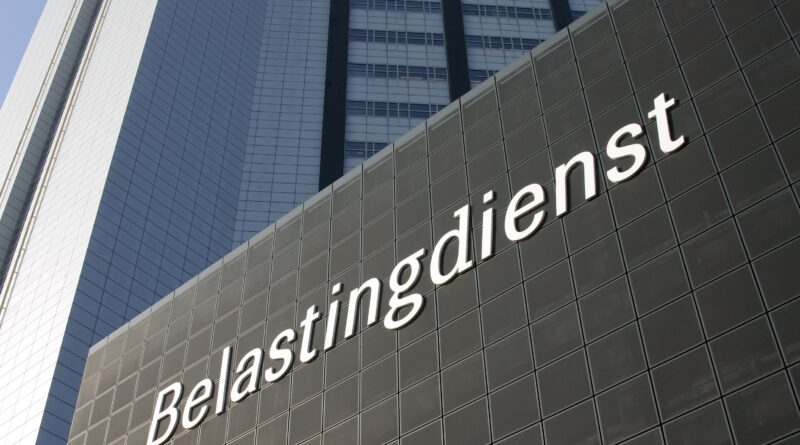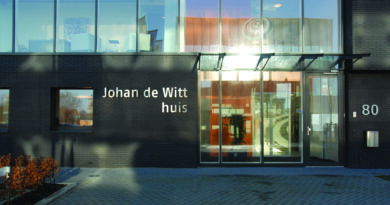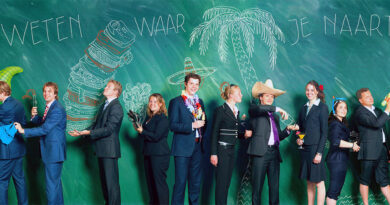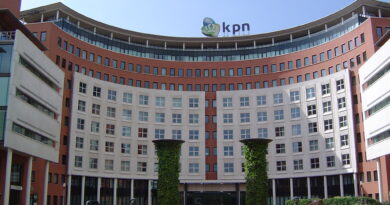Numbers Are Never Just Numbers
Working at Belastingdienst obviously impacts and helps an enormous amount of people. Quite recently, they introduced an interesting new department, where currently quite some econometricians are working. The Belastingdienst invited us to interview one of these employees, who was a student at Tilburg University himself not so long ago.
Wouter Ludwig (29) was a member of the TEV, the predecessor of Asset | Econometrics, during his four and a half years studying Econometrics, and the master Operations Research and Management Science subsequently. Wouter joined the Belastingdienst after first having worked for Deloitte and ProRail.

Why did you choose for econometrics at Tilburg University, and how was your experience studying there?
“I was almost eighteen years old when I chose to study in Tilburg, but the choice of studying econometrics was one I had made much earlier. Already in the second year of secondary school, I told my fellow students I dreamed of a career of being a fortune teller; not one with a crystal ball, no, I wanted to predict events with mathematics. During my time at secondary school I came upon the fact that mathematics suited me very well. However, I also had a strong interest in economics and applying this with mathematics. Therefore I knew econometrics was a perfect decision. I chose to study in Tilburg, because it was important for me that I could find a room, which was much easier in Tilburg than elsewhere. This meant that I moved to Tilburg almost right away into my room, where I have lived and enjoyed my entire study.”
What did you do in your previous jobs?
“I started my career at Deloitte, where I worked for about six to eight months. At Deloitte I worked in the department Data Quality & Integrity, a department which made the accountants’ work easier. We used data analysis to find, for example, suspicious costs in ledgers or double costs. The job was all the way in Amstelveen, and I was still living in Tilburg, meaning it was an extremely difficult job to keep up with. I also had problems with the small amount of freedom that I got at my job, which made it difficult for me to enjoy it. Once we had developed these checks the fun part for me was over, and we had to use this check over and over again to earn as much money as possible, instead of developing something new again.”
“After Deloitte I worked for approximately five years for ProRail in Utrecht. Here I got much more freedom, for I could choose which projects I wanted to work on, and especially how. Again I was placed in a data analysis department surrounded by many experienced railway traffic analysts. The department was relatively new and had lots of potential to improve by using our quantitative knowledge. We drew conclusions by using numbers which others could not make before. For instance, we answered the question how many red light signals there are each year and why the signals where red.”
Why did you leave ProRail for the Belastingdienst if you were doing so well there?
“I stumbled upon a vacancy for the Belastingdienst after working at ProRail for five years. It was a point in my career where I believed that, if I did not take the chance to work elsewhere, I would have never left ProRail. I enjoyed my time at ProRail a lot, but if I wanted to see more and experience something different, this was the perfect moment to move on. I was also having troubles with the fact that people came to me with questions about data, but when I had a question, there was nobody who could help me with these difficult problems in my field. At the Belastingdienst there are many who are much more specialized in fields like pseudonymization and cryptography than me, and are capable of helping me resulting in solving more difficult projects.”
“The vacancy I ran into was for a new department within the Belastingdienst, meaning there was a lot of work to be done, which was another important reason for me to want to work there. The work in the beginning was especially spadework, something I very much liked together with the freedom they offered. We started with very little and there was a lot to improve, making this process and these past two years very rewarding. The Belastingdienst does offer a lot of freedom, such as which opportunities you want to take and how you approach problems, although some other things are more structured here. You are appointed to one project with a specific team for a longer period of time, but with a lot of freedom within the project. Every member of the team can work on the aspects he or she likes the most or which lies within their specialization. Our department also organizes plenty of drinks, dinners and other social activities, making sure you have a good time here at the Belastingdienst.”
What is the function you do?
“Well, they call it a data scientist, but sometimes it is also called a business analyst; so I am somewhere in between. It mostly depends on what you like doing, and where your specialties lay. We look for people who like working with data, programming, analyzing, testing, etcetera. Almost half of the new employees of the department have studied econometrics, but we also have loads of mathematicians and physicians. We have grown enormously since I started working here, meaning we had to move our department to another floor after we went from 10 to over 40 employees. We work in a very young and talented team, and almost everyone is in between 25 and 35 years old. Depending on what project you are working on, you also work together with other departments. What amazes me the most is the impact your job has here; only a minor change of 1% can mean a difference in millions of Euros for the Dutch society.”
What amazes me the most is the impact your job has here
What skills do you need for your job?
“Everyone here needs to have at least a solid basis in working with data and programming. We work a lot with SAS, which is easy to learn with a little programming experience. When you start at the Belastingdienst, they send you on a one-week class in SAS. We also take training programs once in a while in certain techniques and soft skills that you are expected to use. Having experience in SQL can help you a lot here, but I personally did it without SQL and had no problems with learning SAS and SQL in a few weeks. I also like using opensource, such as Python, and maybe R in the near future. The department really adapts with its time and wants to keep up and improve. It is important to have at least one quality you are excellent at to make an addition to the team we already have.”
How many people work at the Belastingdienst?
“The following lesson is something you do not learn while studying, but only with work experience. What is it that you really want to know? I can give you any number, and all of them can be true or very wrong. It all depends on definitions and how you see things, so multiple answers can be correct. Different interpretations can give you different numbers. You can waste a lot of time comparing these numbers, but all you can say really is that the Belastingdienst is big. This lesson holds up for many things within life and work, and is important to remember. Numbers are never just numbers, there is always some story behind them.”
More than 30,000 employees work at the Belastingdienst, which consists of a total of six divisions. The Belastingdienst takes care of more than taxes and premiums only. For instance, did you know that customs is also part of the Belastingdienst?
What else do you do apart from working at the Belastingdienst?
“I used to play a lot of draughts, but due to a lack of time to invest in improving myself, I have decided to quit playing actively. At the moment I am the number six of the Netherlands in draughts, an accomplishment I am very proud of. I even wrote my thesis about draughts; it was about improving the Swiss-system which is used a lot in both draughts and chess tournaments to rank players, by comparing them without having played against each other. It was used for a while by the Dutch draughts association to rank us at the national championships. During my time in Tilburg I played lots, which resulted in me being European champion for students, and participation in the World Mind Games in Beijing of 2008.”
Text by: Max van der Lee





